Роберт Бюттнер - Orphan's Destiny
Здесь есть возможность читать онлайн «Роберт Бюттнер - Orphan's Destiny» весь текст электронной книги совершенно бесплатно (целиком полную версию без сокращений). В некоторых случаях можно слушать аудио, скачать через торрент в формате fb2 и присутствует краткое содержание. Жанр: Боевая фантастика, на английском языке. Описание произведения, (предисловие) а так же отзывы посетителей доступны на портале библиотеки ЛибКат.
- Название:Orphan's Destiny
- Автор:
- Жанр:
- Год:неизвестен
- ISBN:нет данных
- Рейтинг книги:3 / 5. Голосов: 1
-
Избранное:Добавить в избранное
- Отзывы:
-
Ваша оценка:
- 60
- 1
- 2
- 3
- 4
- 5
Orphan's Destiny: краткое содержание, описание и аннотация
Предлагаем к чтению аннотацию, описание, краткое содержание или предисловие (зависит от того, что написал сам автор книги «Orphan's Destiny»). Если вы не нашли необходимую информацию о книге — напишите в комментариях, мы постараемся отыскать её.
Orphan's Destiny — читать онлайн бесплатно полную книгу (весь текст) целиком
Ниже представлен текст книги, разбитый по страницам. Система сохранения места последней прочитанной страницы, позволяет с удобством читать онлайн бесплатно книгу «Orphan's Destiny», без необходимости каждый раз заново искать на чём Вы остановились. Поставьте закладку, и сможете в любой момент перейти на страницу, на которой закончили чтение.
Интервал:
Закладка:
Ahead of me, Tway hung her hands on her hips and whistled.
My jaw dropped. To our front, the Pyramids rose.
Munchkin stood beside me and wiped her eyes. “Visitors don’t expect them to be so close to Cairo.”
To what had been Cairo. Yet here they stood, and so did we, still and silent.
“Egyptians say, ‘All the world fears time, but time fears the Pyramids.’ Welcome to Egypt! I am Haji.” Our tour guide, a mustached Egyptian whose smile showed off a gold incisor, motioned us to our tour vehicle, a UN-blue, diesel-powered relic he called a Humvee. Only a few ancient people have ever driven a diesel-powered vehicle. My head snapped back as the Humvee lurched away, then forward as he jerked the automatic transmission. Haji was plainly not among the ancient few.
The time the Pyramids themselves should fear is time spent riding in a Humvee. Humvees ride like ox carts. I know that because Haji stuck our Hummer in a mud pit and we finished our tour riding in an ox cart. Tway’s tour did teach me that most of the rest of the world lacked the tech to build spaceships.
Our first stop was the impact crater’s west rim. Munchkin kept Jude in the Humvee. Somewhere in that vast hole rested the remains of the family Jude would never know.
I stared three miles across, to the opposite rim, a shallow Grand Canyon. Like the Grand Canyon, a river ran through it.
Haji pointed at the wide Nile, and at the smaller crater that overlapped the impact crater’s south side. “Thanks be to God, United States reopened the Nile, or many more would have died in the floods.”
A U.S. nuclear missile had broken open the crater-rim dam and released the Nile to flow north to the Mediterranean. But there had likely been innocent Egyptians alive at ground zero when President Irons ordered the button pushed. Who could say that Margaret Irons had not killed Munchkin’s family? But who could say that Irons’s decision to save millions of Egyptians by nuking Cairo was wrong? The word was that Margaret Irons got forced to resign. But with a job like that, maybe she just quit. A lump grew in my throat. Command was a bitch. The stars on my shoulders weighed tons. I wanted to be a grunt again.
Tway shook her head. “Forty years ago, no one would have believed that Muslims would thank the U.S. for nuking the largest city in Islam.”
We spent an hour lobbying the mayor of New Cairo, in a Quonset-hut city hall. He greeted me Arab style, with a kiss on each cheek. He also seemed to me to be hitting on Munchkin, whether she was bundled up or not. The whole thing conjured visions of quasi-incestuous ménage à trois that I didn’t need with a queasy stomach. Then the Egyptian foreign minister showed us around the Pyramids while Munchkin chatted him up in Arabic.
Tway was smiling. We were winning over Muslim demographic groups like Grant took Richmond.
Later, Haji buried our Humvee axle-deep at a muddy clean-up and reconstruction site in the Nile floodplain, south of Cairo. I rolled up my trouser legs and climbed out, barefoot, in my American uniform, to see whether a push would free us. A turbaned man, ankle-deep in muck and digging with a wood-handled adze, looked up. He scooped mud with the adze blade, then flung it at me. Evidently, not all Muslims thanked us.
I asked Tway, as she leaned out the Humvee’s window, “What demographic is he?”
“Get used to it. Politics is no popularity contest.”
“I thought that’s exactly what it was.”
She sighed. “Wander, what made you so difficult?”
I tore one foot free from the mud with a sucking pop. “Difficulty.”
We outran the sun back to North America, but the Scram was returning us to Washington, not Canaveral. While Munchkin and Jude dozed, I asked Tway, “Doesn’t it strike you as ridiculous that Blitz survivors in Egypt are rebuilding with ox carts while we’re hunting publicity in a Scramjet with a fuel bill that would feed them all for a year?”
Tway smiled. “See? You’re beginning to understand why the world can’t afford soldiers as expensive as you are. But no, I don’t think the Scram is extravagant. Or, at least, it’s a necessary extravagance. You and Lieutenant Munshara-Metzger have another appearance in Washington in the morning. Only a Scram could get you to Egypt and back in a day.”
In the limo to our hotel, Munchkin bounced Jude on one knee and asked me, “What do you think?”
“I think the world’s in the toilet. I think we need to spend every penny on reconstruction. I also think we need to spend every penny on defense. I think politics is an impossible balancing act and I hate it. I think this job fits me like bicycle shorts fit hippos.”
She sighed. “Maybe the thing tomorrow will change your mind.”
“What thing?”
EIGHTEEN
THE NEXT MORNING Tway stood on the gravel path that split the Capitol Mall in front of the Smithsonian’s Air and Space Museum while she read from a Chipboard. She shouted at me, “Well, not even you can screw up today!” An early-morning jogger stream parted and flowed, panting, around us.
Tway had to shout because, behind us, hydraulics whined as winches mounted on two diesel trailers big enough to move houses inched Mimi Ozawa’s V-Star, floodlit in dawn half-flight, onto the Mall’s dead grass. Alongside the V-Star rose a bunting-draped stage, UN blue and American-flag-striped, ringed by spindly temporary bleachers.
Tway adjusted her glasses and pointed at the stage. “You sit up there with the other veterans. The assistant to the Secretary-General hands over the title papers to the director of the Smithsonian—”
“She’s already an American ship!”
“Technically, she’s UN Space Force property. Look, it’s a chance for the world to thank America. Most of the Ganymede Expeditionary Force were American. It’s a friggin’ symbol. Like you.”
A friggin’ symbol. The V-Star, still painted Ganymedetan camo, would squat on its landing gear as a static display, on the Mall in front of the museum, for a year. Then more flatbeds would haul it off to be gutted of its avionics and engines. Then the V-Star would be tucked into some aircraft nursing home of a hangar, alongside other winged relics of other wars. That’s what happened to symbols. I blinked back a tear.
Tway looked in my eyes. “It’s just a hunk of titanium.”
I pretended to scratch my nose so I could wipe it.
“Hibble will be up on the stage, too. And Sharia with her little boy. And your Senior NCO, Brumby.” She drew a finger across the blank bottom of the Chipboard screen. “You’ve got the next two days off. After the ceremony, make the reception a reunion. Relax. Stay out of trouble.”
I straightened and smiled.
The ceremonies went off hitch-free. I had no responsibilities while the politicians spoke, so I sat onstage next to Howard and divided my attention between making eye contact with a business-suited brunette in the bleachers and watching three-year-old Jude Munshara-Metzger squirm on his mother’s lap. Brumby sat beside Munchkin. He squirmed, too, looking like he was searching for something to blow up.
Afterward, the Smithsonian hosted a buffet in the Air and Space Museum for ceremony participants.
Brumby, Munchkin with Jude, Howard, and I shared a table. At another table, the brunette in the business suit sat facing me in a group and smiled. Celebrity had its good points.
Brumby chewed a National Park Service cheeseburger. “They should have let President Irons accept the ship.”
Muchkin read nutrition labels on a chicken sandwich while she cut it into small pieces for Jude. “The crowd would’ve booed her off the stage. They think she wrecked the economy.”
Brumby waved his cheeseburger. “The crowd wouldn’t be here if she hadn’t! And the Slugs had just a little bit to do with it.”
Читать дальшеИнтервал:
Закладка:
Похожие книги на «Orphan's Destiny»
Представляем Вашему вниманию похожие книги на «Orphan's Destiny» списком для выбора. Мы отобрали схожую по названию и смыслу литературу в надежде предоставить читателям больше вариантов отыскать новые, интересные, ещё непрочитанные произведения.
Обсуждение, отзывы о книге «Orphan's Destiny» и просто собственные мнения читателей. Оставьте ваши комментарии, напишите, что Вы думаете о произведении, его смысле или главных героях. Укажите что конкретно понравилось, а что нет, и почему Вы так считаете.

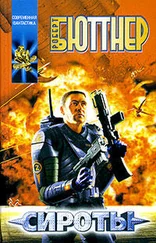

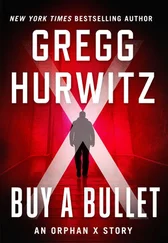
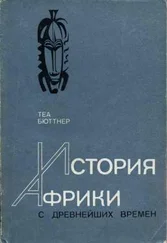
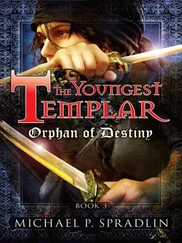
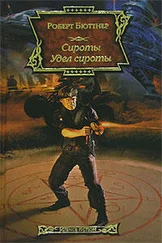
![Дэн Бюттнер - Где живет счастье [Правила жизни самых счастливых людей планеты] [litres]](/books/395574/den-byuttner-gde-zhivet-schaste-pravila-zhizni-samyh-thumb.webp)



